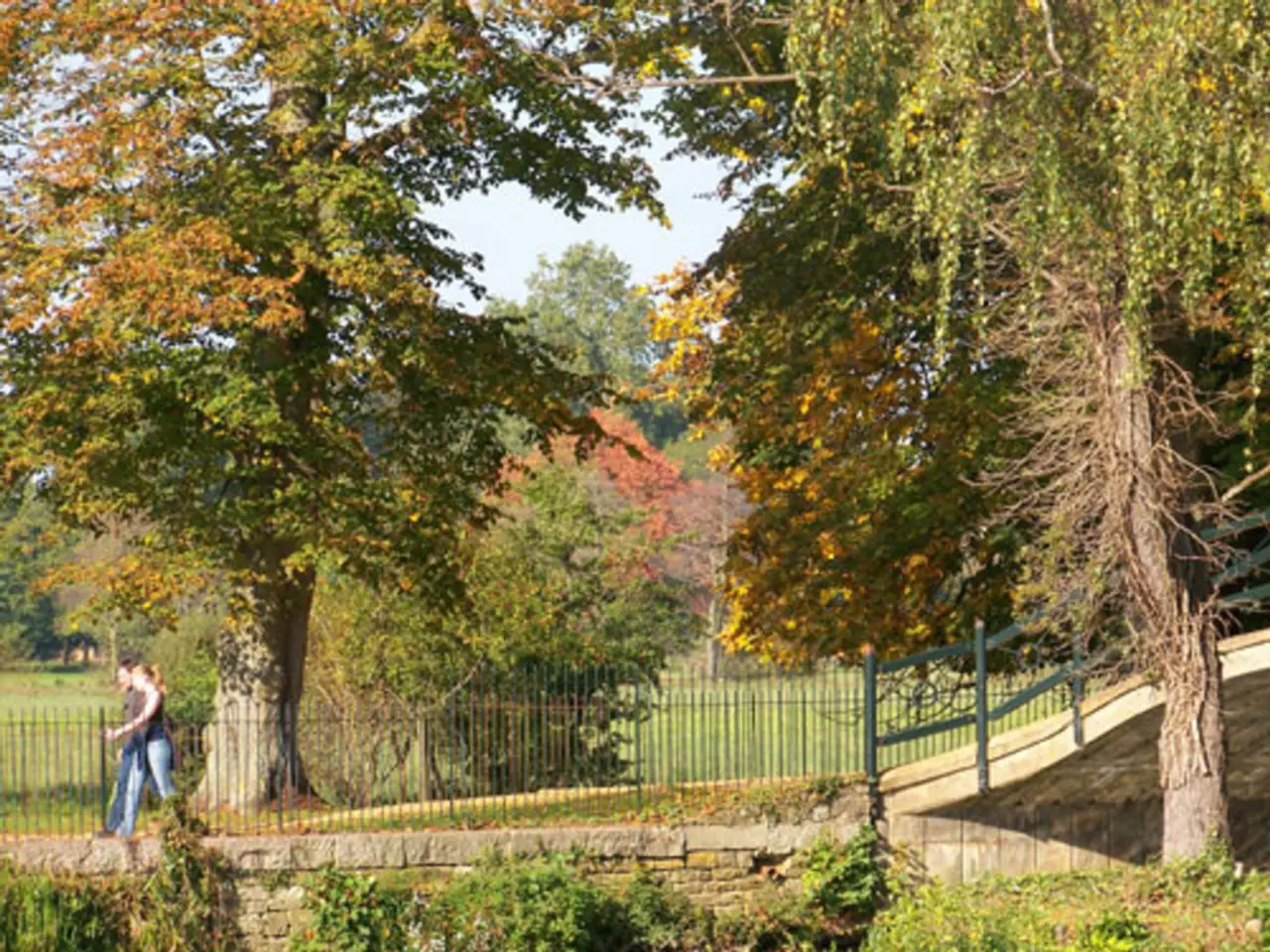Refreshing Brain Functions through Natural Processes
In today's fast-paced world, it's easy to forget the simple pleasure of being outdoors. However, a growing body of research suggests that spending time in nature can have profound effects on our health and well-being.
Being outdoors increases our exposure to sunlight, which helps the body produce vitamin D, essential for bone health and improved mood. Vitamin D might play a role in regulating temperament and warding off depression.
Doctors are increasingly prescribing time in nature as a means to reduce depression and improve health. Spending just 120 minutes per week in nature can cut the risk of depression by 30%. This is not surprising, as spending at least 30 minutes in green spaces in national parks can result in a 15% drop in feelings of stress and a 20% boost in overall life satisfaction.
National parks encourage physical activity, leading to the release of endorphins and serotonin, chemicals associated with happiness and well-being. Modern life, with high-speed internet, AI exposure, and stress-ridden workplaces, rarely allows for relaxation.
Nature exposure also enhances cognitive function and attention. Studies suggest that time in nature can improve memory and attention span. Even brief exposure—such as 20 minutes in nature or viewing natural scenes—can result in measurable reductions in stress and improvements in mood and cognitive performance.
The key mechanisms behind these benefits include activation of the parasympathetic nervous system, which induces relaxation and reduces nervous system arousal. Reduction in cortisol, the body’s primary stress hormone, leads to physically lower stress and anxiety. Increased serotonin and dopamine release, chemicals associated with happiness and well-being, also play a significant role.
Moreover, nature-related experiences often foster a sense of connection, awe, and purpose, which support overall mental well-being and resilience against daily stressors. This is evident in practices like "forest bathing," a Japanese tradition that involves walking through a forest and can decrease levels of cortisol, the stress hormone.
These benefits extend indoors as well; viewing nature photography or natural imagery can replicate some calming and focus-enhancing effects in office or home settings. Brief "nature walks" can reduce rumination (endless loops of anxious thoughts), and viewing pictures of nature can help reduce stress.
Shirley M. Mueller, M.D., a well-known speaker who blends art and science to unravel the mysteries of the collector's mind, has shared her insights in major cities worldwide and across the United States. Her book, "Inside the Head of a Collector: Neuropsychological Forces at Play," explores the neuropsychological aspects of collecting.
Patients with hypertension who follow park prescriptions see measurable drops in blood pressure after just a month. Researchers have linked "awe" experiences, such as viewing Half Dome in Yosemite or the Grand Canyon, to reduced inflammation, improved well-being, and even a smoother sense of time.
In conclusion, spending time in nature can have a significant positive impact on our mental and physical health. Whether it's a walk in the park, a trip to a national park, or even viewing nature photography, incorporating nature into our lives can help reduce stress, improve mood, and boost cognitive function.
- Beyond just improving mood, vitamin D produced by sunlight exposure in nature plays a role in regulating temperament and possibly warding off depression.
- Incorporating time in nature, such as spending 120 minutes per week, can help cut the risk of depression by 30%.
- The benefits of nature exposure reach beyond our physical health, as it also enhances cognitive function and attention, improving memory and attention span.
- Viewing nature photography or natural imagery in office or home settings can replicate some calming and focus-enhancing effects, helping to reduce stress and rumination.




